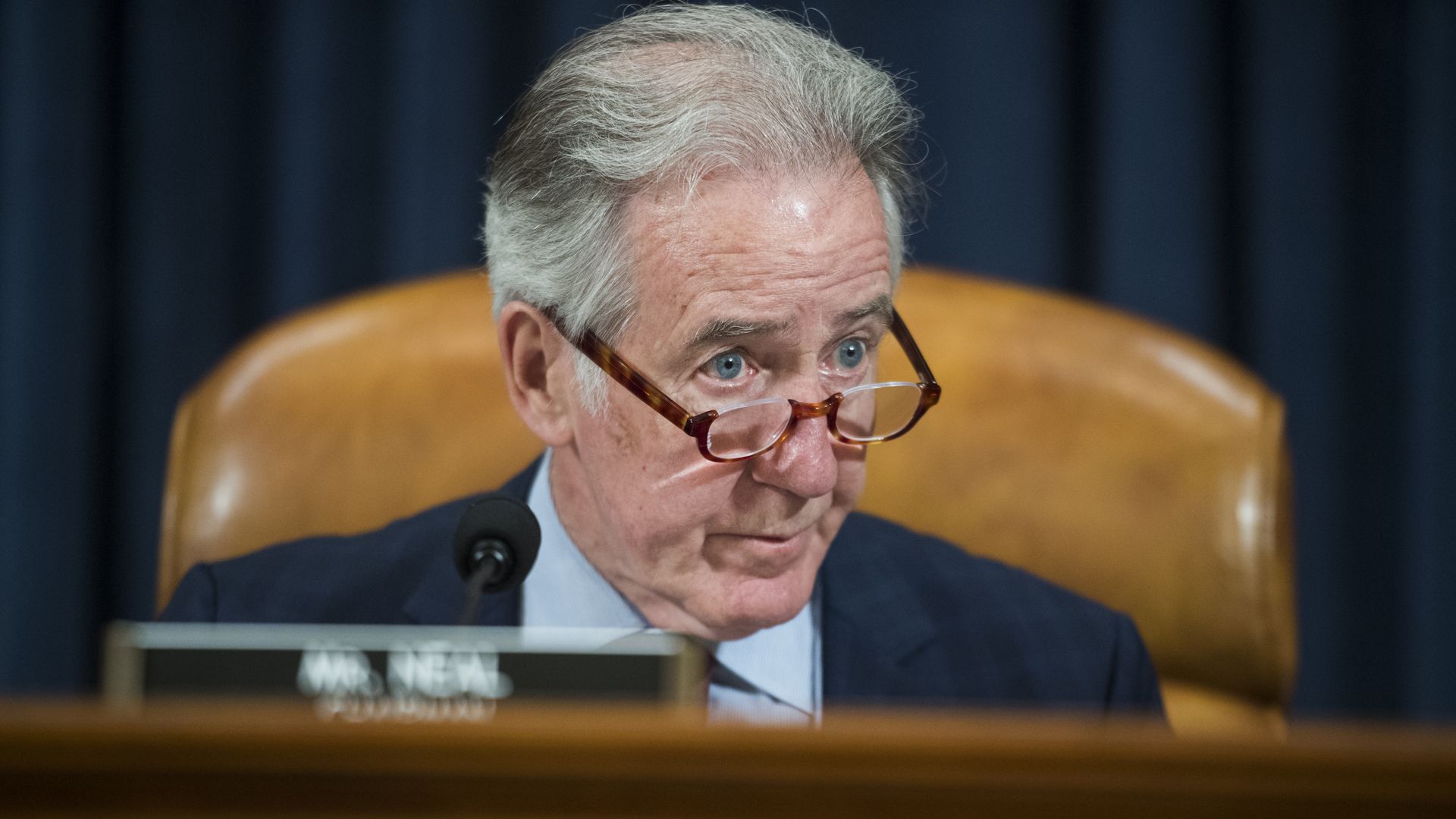House Democrats will consider $2.9T in tax hikes — mostly on the wealthy and corporations
By Hans Nichols, Jonathan Swan
House Ways and Means Chairman Richard Neal (D-Mass.) (Photo: Tom Williams/CQ Roll Call)
House Democrats will consider as much as $2.9 trillion in tax hikes for the next 10 years — mostly on the extremely wealthy and corporate America — as they scramble for ways to pay for President Biden's $3.5 trillion infrastructure and social spending plan.
Why it matters: A draft proposal from the Ways and Means Committee, which ricocheted across Washington Sunday night, previews epic fall fights between Democrats and some of the best-armed lobbies in America.
Driving the news: The summary, first
reported by The Washington Post, includes a top personal rate of 39.6%, up from 37%, which would raise $170 billion over 10 years.
- Democrats are looking to raise $1 trillion from the wealthiest Americans and $900 billion from corporate America.
- While President Biden has defined the “rich” as any individual or household that makes more than $400,000, the Democratic plan draws the line for individuals at $400,000; households at $425,000; and married couples at $450,000.
By the numbers: The top capital gains rate would increase to 25% from 20% — raising some $123 billion.
- Changes to what qualifies as investment income, some of which is already subject to 3.8% Obamacare tax, would make the effective capital gains rate 28.3%, raising $252 billion.
- Accelerating the end of the $24 million estate tax exemption would bring in another $50 billion.
- Imposing an additional 3% tax on Americans who make more than $5 million would raise $127 billion.
- Expanded restrictions on carried interest impacting how private equity firms compensate employees could bring another $14 billion.
- The pharmaceutical industry could be forced to foot $700 billion of new spending by negotiating rates directly with Medicare.
Add these provisions and others up and you get to $2.9 trillion.
- Then the plan counts $600 billion from so-called dynamic scoring, based on an assumption that the proposed policy changes will accelerate economic growth and therefore revenues. That's how Democrats could get to $3.5 trillion, at least on paper.
The big picture: While the menu gives Democratic lawmakers options, it also forces them to take sides on everything from a 3% surcharge on the uber-rich to a 26.5% corporate tax rate.
- There'a already a raging argument over the top line spending figure, with Sen. Joe Manchin (D-W.Va) settling between $1 trillion and $1.5 trillion, and Sen. Bernie Sanders (I-Vt.) calling anything short of $3.5 “totally unacceptable.”
- Substantive policy differences between the House and the Senate could become as important, with Sen. Mark Warner (D-Va.) threatening to vote against the budget package Sunday night over homeownership concerns.


